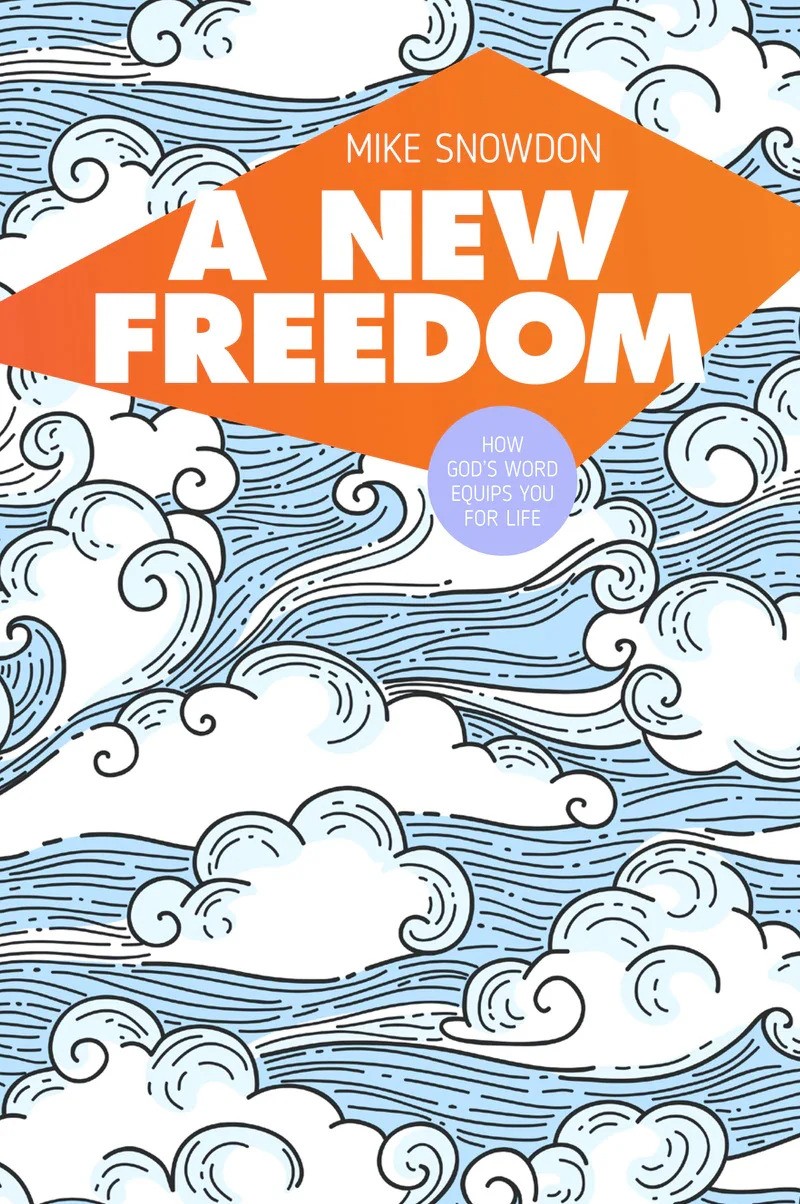As the divide between Christianity and western culture widens, questions of ethics have become increasingly complex. Such challenges have not escaped our teenagers. They are being confronted by their peers. Questioned by their teachers. Preached to by their pockets.
Why do bad things happen? Why is there so much violence in the Bible? Why is God so interested in who has sex with who? Can’t I do what I want as long as I’m not hurting anyone? Shouldn’t I be true to myself?
As a Christian, God’s word holds the final authority in ethical issues. ‘The Bible tells me so’ is placing trust rightly where it belongs.
But it’s of vital importance for our young people to understand, trust and explain why the Bible tells us so. Why it matters. Why it’s good. In A New Freedom, an introductory guide to Christian ethics, Mike Snowdon helps teenagers see they have no need to doubt the Bible’s approach to life. God’s word is true. It is also good.
The Theoretical Kite
Ethics is like kitesurfing. You need to confirm your location (define your topic), examine your conditions (identify some of the influences and desires that will impact the topic), set up your kite, and then plan how you will go about your surf.

A New Freedom
Mike Snowdown
This book is like a training manual on how to approach life—a beginner’s guide to Christian ethics. It provides a framework for approaching any topic in a comprehensive and biblically faithful way, explaining why Jesus and his word help us live in freedom, and giving practical examples in six key youth topics: study, money, suffering, violence, sex and identity.
Mike Snowdown has worked with teenagers and young adults for 15 years as a youth pastor, speaker, student worker, and resource creator, including in Spain. He is married to Tania and they have four boys.
Snowdon’s ‘kite’ is a slightly complex model of ethics that took a couple of chapters to explain but is incredibly practical and useful.[1] There are four ways people commonly justify their decisions: results, values, rights, and rules. When you want to practice basketball so you can win the game on Saturday (results), but your mum reminds you that you promised to clean your room, and that in this family we keep our word (values), decision-making starts to get complex (27–28). Different factors pull against and conflict with one other. Too often, the deciding factor placed at the centre of this kite is: me.
Snowdon’s kite is different. It focuses on God’s character, God’s commands, God’s purpose for the world in Creation, and the new Creation to come. At the centre—reconciling, fulfilling and directing all these things? Jesus. Once we get a handle on this kite, we start to understand God’s good purposes for us and how to navigate ethical challenges.
Flying the Kite
In part two, Snowdon models how to use the kite across six practice sessions: being a student, using money, suffering, violence, sex, and identity.
When it comes to money, ‘confirming our location’ involves considering money’s importance and what we would normally do with money we were given and why. When we ‘examine the conditions’, we consider how money can bring worry and pressure from others’ influences and our own desires. We then ‘set up our kite’ by taking a tour through Scripture; not just examining what the Bible says about money’s usefulness and dangers, but how the big story of the Bible—who God is, who we are, what Christ has done for us, and the new creation to come—impacts our approach. Only then are we ready to ‘make a plan of attack’ and make decisions about money that will build treasures in heaven—treasures that last—as we spend, give and save.
There is a lot to love about the way Snowdon writes. He has a knack for anticipating and addressing questions before they have a chance to distract from the process, occasionally acknowledging a question and promising to return to it at a later point. At times there were lines of thought which could have been developed further and require extra work from the reader—but this section’s purpose is to model an ethical approach, not provide an exhaustive response.
What Sets This Kite Apart
There are some great apologetic and Christian ethics books in the teen market, but their ethical framework tend to be less explicit. A New Freedom is different, directly equipping readers with a framework to work through personal ethical questions and scenarios which they are facing both now and in the future. As a result, it will be beyond some readers. It’s long and more work to sit and read than similar books, but diagrams, images and QR codes linking to videos and resources help make the book engaging and interactive. For those who are parents or youth leaders, I’d recommend using the accompanying study material and working through it with your child, mentee or youth group.
As a fan of Andrew Cameron’s Joined-Up Life, I was delighted at Snowdon’s efforts to make this ethical framework accessible for young minds.[2] When faced with questions from friends, opposition from teachers or constant and conflicting messages from media, our teens need confidence in God’s word. To know it is both true and good. Snowdon thinks kitesurfing through ethics is just the approach needed. I think he may be right.
[1] You can watch Snowdon explain his kite ethics model here.
[2] Snowdown acknowledges he is working from Cameron’s framework in his introduction.












